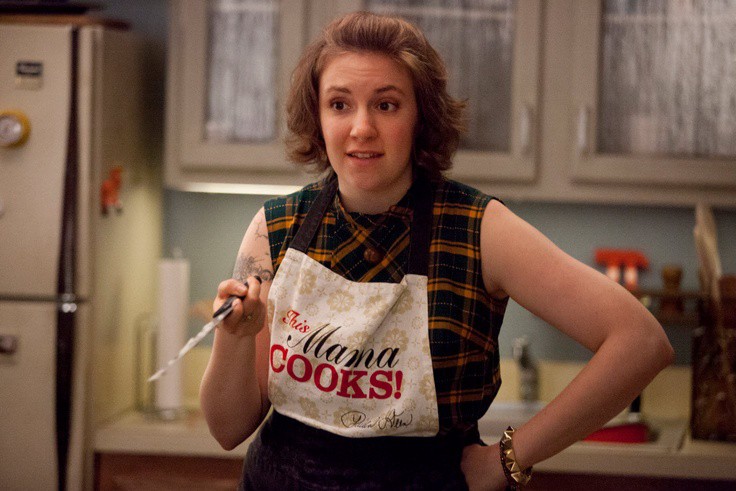
This post comes to us from real-life grown-up, Ben Maddison.
A friend of mine, a Gen-Xer if you’re into imprecise but incredibly accurate labels, asked me the other day why Millennials (myself included) have so much difficulty becoming adults.
From Girls to Awkward to The Unbreakable Kimmy Schmidt to pretty much any media depiction of 20-somethings, Millennials seem incapable of getting their lives together. Maybe they are overly-coddled, prone to engaging in social drama, or kept in a bunker for fifteen years by a guy who claims he started the “Buy the World a Coke” advertising campaign. Whatever the reason, there seems to be a touch of truth to the problem of Millennials failing to become adults.
I always thought I’d be a pretty great adult. I’m (generally) responsible, independent, and I like doing my own thing. I’ve been taught that I should do what makes me happy and that I can do that because I’m special. I know what I have to do to be successful: get a good job; stay out of debt; make healthy, delicious food; work out. Check every box in the “How Grown-up are You Actually” Buzzfeed quiz.
Things I want to do (or even things I don’t want to do but know I should do), I don’t do.
The battle for adulthood is waged every day, and mostly in the kitchen.
I get food mailed to my house. In the last 6 months, there’s been an explosion of mail-order meals. Blue Apron, HelloFresh, Home Chef—a new way the Internet is disrupting the tired models of food sales and grocery-store monopolies. I spend more money than I should just for the fleeting satisfaction of knowing that I’m making food (delicious, gourmet, amazing food btw) as opposed to eating out. I’m no longer boiling hotdogs for dinner (or frying them if I’m feeling fancy). I’m making Beef Ramen Noodle Soup with Choy Sum & Enoki Mushrooms, all locally sourced, individually packaged, and delivered to my front door. This is not your 25 cent “chicken” flavored, dried, processed, mass-produced grad-school staple ramen; this ramen was made by hand, shipped to my house, with each vegetable individually diced, sautéed, salted and peppered, seasoned, and added to the mixture—all done by me in my own kitchen—priced at a whopping $10 a head, and everything has an aioli. Every Tuesday, when that box arrives with my bespoke, overpriced, ridiculous meal plan, I can be both confident (and ashamed) at my level of #adulting.
That’s the thing, I think. The reason Millennials—the reason I— have problems transitioning into adulthood is that reality has been replaced by a hashtag. It’s no longer enough for me to be satisfied knowing that I’m doing fine—I need to be doing better. I need to be better than my parents’ casseroles and cream-chipped beef. I need to be better than my peers, who share photos of tapas and five-star restaurants and their designer lives. I need to be better than myself—better than boiled hotdogs and steamer bag veggies. Fine is not good; better is best. I need to be as special as promised.
Adulthood has been reduced to checkboxes on an Internet listicle. The feeling of inferiority, the burden of work, the constant stress and judgment and not-enough-ness— it only counts and can only be assuaged by a picture posted to Facebook, or Instagram, or Twitter with the hashtag #adulting. A picture that elicits envy, marks my success, reaffirms my individuality, and screams, “I really am a successful snowflake.” And as the likes and hearts and comments roll in, I feel like maybe this time I’ve done it. Maybe this time I’ve reached adulthood. Maybe this time, the lifestyle I’ve curated for myself will feel like the life I’m living.
But this meal is the same meal delivered and cooked and shared by thousands of other people. The same box, the same ingredients, the same promise of #adulting. And they are getting more likes. They have plated it better, made it healthier, and supplemented the recipe more creatively. This symbol of #adulting is just a mass produced, commercialized balm for my need to be better. The race for better never ends in a best, it keeps looking for its next better.
Things I want to do (or even things I don’t want to do but know I should do), I don’t do.
And maybe that’s where #adulting ends and adulthood starts, in the recognition that satisfying the demands of self and of the world are fruitless. Adulthood isn’t boxes checked, gourmet dinners made, or artfully capturing perfect moments of maturity with the right filter in Instagram (Valencia, always Valencia). It’s dying to the expectations that all the boxes should or need to be checked. Adulthood is the grace to look at friends, under the same or worse burdens as you and to say, “You’ve done enough—we’ve all done enough—let’s order pizza.”
When the meal ends, leaving only empty wrappers and promises of mail-order food, and the Facebook likes dwindle, we see that #adulting is an empty version of adulthood— devoid of reality, devoid of grace. The promise of more and better is a never-ending loop.
There is grace in boiled hotdogs. There is hope in 25-cent ramen.
He is made known to us in the boiling of dollar store hotdogs. Christ shows up in those meals, reminding us that it’s done, that life goes on, that there is life after the likes and the meals and the hashtags. That, whether we know it or not, we are becoming that which he intends.
That is, an adult. Or maybe a person who really enjoys boiled hotdogs.

COMMENTS
One response to “On #Adulting and Mail-Order Food”
Leave a Reply















For some, mail order food may be a box checked, extension of their coolest self—but for our house, it’s a marriage saver. No one to blame when it all goes wrong or someone didn’t make it to the grocery. That’s enough for me.